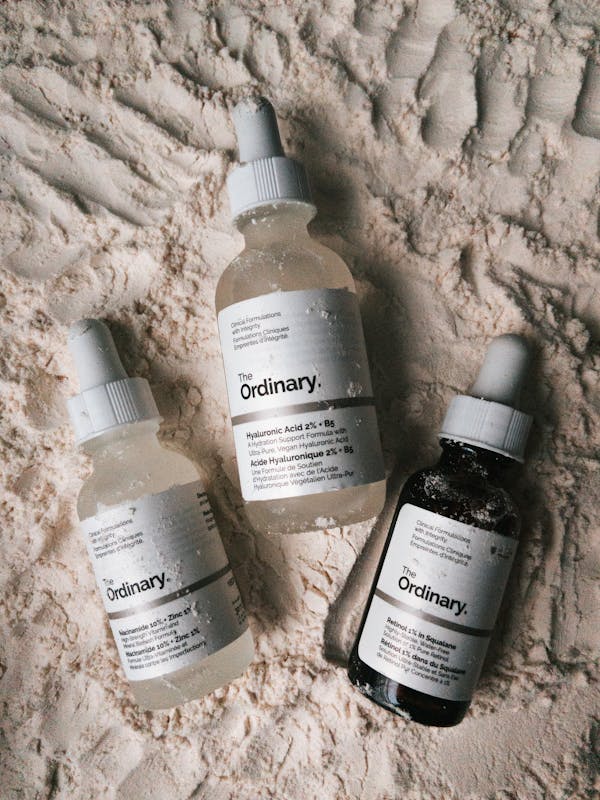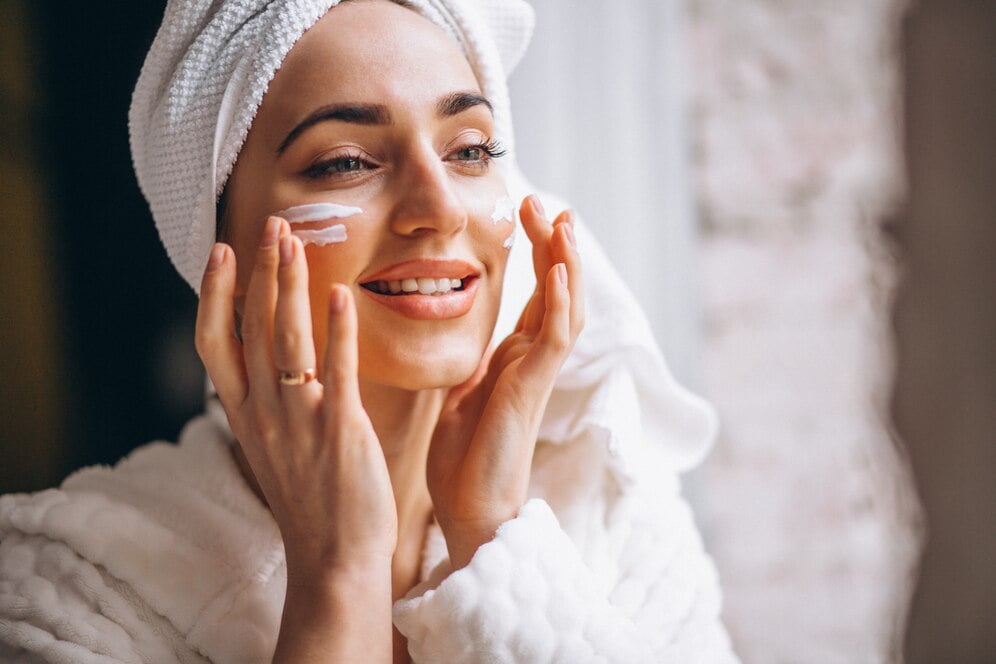What is Hyaluronic Acid

Hyaluronic Acid is also known as Hyaluronan or Hyaluronate. It’s a naturally occurring substance(polysaccharide) found in various tissues and parts of the human body. It can be found in joints’ soft connective tissues, eyes, and synovial fluid. Hyaluronic Acid is a part of long-chain complex carbohydrates called Glycosaminoglycan(GAGs). This acid plays an important role in maintaining the hydration and structural integrity of the tissues. It is a powerful skin moisturizing agent as it can absorb 1000 times its weight in water and can both attract moisture to the skin and hold water in the skin and other tissues.
Its popularity in skincare
Because of its capabilities, Hyaluronic Acid has gained immense popularity in the skincare industry. Manufacturers incorporate hyaluronic acid into a variety of products, such as serums, moisturizers, and creams, to provide hydration, improve elasticity, and enhance overall appearance. Makers commonly advertised it, as an ideal product for the skin of people suffering from dryness, especially in their old age, as it provides the skin with volume making it lose the wrinkled look on the skin surface.
This Acid is also helpful in wound healing, tissue repair, and other processes. Accordingly, there is a good safety profile of hyaluronic acid and most patients experience minimal adverse effects, although instances of hypersensitivity reactions are rare and this product is safe for most skin types, including sensitive skin.
Understanding Acne

The presence of pimples, blackheads, whiteheads, and cysts on the skin is commonly called Acne. Acne primarily affects the areas with a high concentration of sebum like the face, back, and shoulders.
Causes
Most probably acne occurs when hair follicles are blocked with excess oil, dead skin cells, and bacteria. Although acne is most common in teenagers as a result of hormonal changes, it can happen to anyone at any age or type of skin. Other causes of acne are genetic predisposition, dietary factors, and environmental influences.
Benefits of Hyaluronic Acid for Acne-Prone Skin
Hydration and skin barrier support
The ability to provide a massive amount of hydration without blocking pores is the fundamental benefit of Hyaluronic Acid. It extracts the moisture from the atmosphere and binds it to skin cells. This ability of acid helps keep the skin hydrated prevents dryness and promotes a healthy and balanced complexion.
In addition, hyaluronic acid also assists in maintaining the skin’s barrier by freshening the lipids which are essential in the skin barrier function. A healthy skin barrier is less sensitive to irritants, inflammation, and environmental conditions; judging from the functions of hyaluronic acid as described above, it is more appropriate for acne-prone skin.
Anti-inflammatory properties
Hyaluronic acid also possesses Anti-inflammatory properties. It helps in reducing the redness and irritation associated with acne breakouts. This Acid provides relief to sensitive, acne-prone skin by reducing inflammation and also shortens the lifespan of a breakout.
Potential for reducing acne scars
The Hyaluronic Acid does not directly deal with the causes of acne. The effectiveness of impact depends upon the duration of treatment. Due to its ability to stimulate the production of collagen and support in skin’s repairing process, hyaluronic acid can minimize the effects of shallow acne scars by concealing its irregularities and rough texture.
Additionally, the ability of acid in healthier skin cell growth helps in improving the overall texture and appearance of skin. Further treatments in combination with hyaluronic acid that can improve the skin-repairing process are micro-needling or chemical peels.
Balancing Sebum Production
Hyaluronic Acid also helps in maintaining the sebum production. A cross-sectional study conducted on patients in 2017 showed that hyaluronic acid can inhibit lipid production in sebaceous glands, which gives an implication for controlling sebum production. The Hyaluronic Acid maintains the proper hydration levels. It prevents skin dryness and supports the skin barrier function, otherwise, sebaceous glands may overproduce the sebum.
How to Use Hyaluronic Acid for Acne
It’s advised to use Hyaluronic Acid daily in your skincare routine for effective results.
Recommended forms

Serums and Creams are the most recommended options for using hyaluronic acid for acne. The serums consist of hyaluronic acid must be the first ingredient to use in your care routine. They can easily absorb into your skin, providing deep hydration and plumping effects. They must be used before heavier creams or oils. These serums also help in reducing lining and wrinkles on your face.
On the other hand, creams must be on the last of your skincare list. When comparing them to occlusive agents, hyaluronic acid creams are thicker and better able to lock in moisture and keep your skin hydrated. Some creams may also contain salicylic acid or niacinamide for additional benefits.
Application tips and frequency
- Use mild wash on the skin to get rid of dirt, oil, and dead skin cells on the skin so a great surface for penetration of the hyaluronic acid can be provided.
- The second way how to use hyaluronic acid on the face is to wet the skin with water or mist. This assists in holding the moisture and enables the acid to get past the skin layers easily.
- Massage the hyaluronic acid serum or cream on the affected areas when your skin is slightly wet and let it be absorbed by your skin without rubbing. The skin should not be rubbed or massaged, as this interferes with the status of the skin barrier.
- Use other topical treatments if necessary, for example, products with salicylic acid or benzyl peroxide to minimize the inflammation of pimples and to prevent the oil production in the skin, and then apply a moisturizer to the skin.
- You should take hyaluronic acid daily or every other day to ensure that the skin stays hydrated and to strengthen its barrier function.
- Use it as recommended and let it a least 4-6 weeks of usage to effective and notable differences in skin’s health, hydration, and texture, and improvement of skin problems like acne.
- After applying the product during the day, you should use a broad-spectrum sunscreen. It’s because hyaluronic acid increases skin sensitivity to UV radiation.
Conclusion
The last recommendations regarding the usage of hyaluronic acid as an addition to acne products stress the necessity of its daily application and combinations with other active components. As a part of the serum or included in creams, hyaluronic acid can be effective when combined with such medications as salicylic acid or benzoyl peroxide, increasing their efficiency and reducing dryness at the same time. Accordingly, hyaluronic acid should be applied on wet skin and then followed by the use of a proper moisturizer. Thus, within the framework of using hyaluronic acid as an integrant of an effective skincare routine, this substance will be an essential tool to combat the breakdown of the skin’s condition.




